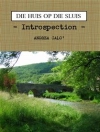Natural capital accounting provides techniques to value natural resources and the ecosystem services they deliver. These techniques are being increasingly used by governments, banks and other financial institutions to set conservation priorities, make ecologically-based investment decisions, and to improve the impact of agri-food businesses on the natural world.
Protecting natural capital and biodiversity in the agri-food sector provides a comprehensive overview of how key actors in the agri-food supply chain account for their impacts on natural capital. The book explores recent advances in the accounting and reporting frameworks to measure these impacts, as well as how natural capital and biodiversity can be identified and protected in a variety of agri-food sectors such as dairy production, palm oil production and winemaking.
The book showcases how the agri-food sector can better value and protect ecosystem services and reverse the depletion of natural capital and biodiversity.
Innehållsförteckning
- 1. Protecting natural capital and biodiversity in agricultural supply chains: introduction: Jill Atkins and John Peirce, Cardiff Business School – Cardiff University, UK;
Part 1 The impact of agriculture on natural capital and biodiversity: international case studies
- 2. Factoring biodiversity into the agri-food sector: international best practices and experiences from South Africa: Yvette Lange and Warren Maroun, University of the Witwatersrand, South Africa;
- 3. Avocado cultivation and biodiversity challenges: Yvette Lange and Warren Maroun, University of the Witwatersrand, South Africa;
- 4. The circular economy and sustainable soybean farming in Brazil: an integrated approach: Wayne van Zijl, University of the Witwatersrand, South Africa;
- 5. Biodiversity considerations in the marine aquaculture and fisheries industries: Dusan Ecim and Warren Maroun, University of the Witwatersrand, South Africa;
- 6. Assessing the impact of pesticides on natural capital and biodiversity: Mira Lieberman, University of Sheffield, UK;
Part 2 Protecting biodiversity and natural capital in agri-food supply chains: the role of accounting and finance
- 7. Advances in corporate natural capital accounting: Joël Houdet, The Biodiversity Footprint Company and University of Pretoria, South Africa;
- 8. Natural capital and biodiversity accounting in the Swedish agri-food sector: Kristina Jonäll, University of Gothenburg, Sweden;
- 9. Biodiversity reporting in the fast-food industry: Dusan Ecim and Warren Maroun, University of the Witwatersrand, South Africa;
- 10. Natural capital and biodiversity accounting in the dairy industry: the case of Valio Group: Hannu Schadewitz, Turku School of Economics at the University of Turku, Finland;
- 11. Natural capital and biodiversity accounting in palm-oil production: Gunnar Rimmel, Aalborg University Business School, Denmark; and Maizatulakma Abdullah, The National University of Malaysia, Malaysia;
- 12. Natural capital accounting and biodiversity in the Italian winemaking industry: Federica Doni, University of Milano-Bicocca, Italy; Antonio Corvino, University of Foggia, Italy; and Silvio Bianchi Martini, University of Pisa, Italy;
- 13. The role of global investors in protecting natural capital and delivering ecosystem services within agriculture, food and other land use value chains: Martina Macpherson, Henley Business School, UK/University of Zurich, Switzerland/Future of Sustainable Data Alliance, UK/All-Party-Parliamentary-Group (APPG) on ESG – Houses of Parliament, UK;
- 14. Exploring corporate weather accounting by the UK food retail industry: Elisabetta A. V. Barone, Northeastern University London and University of Galway, UK; Jill Atkins, Cardiff Business School – Cardiff University, UK; and Warren Maroun, University of the Witwatersrand, South Africa;
Part 3 Protecting pollinators and insect biodiversity in agri-food supply chains
- 15. Using data to assess the impact of agriculture on pollinators and pollinator services: Noa Simón Delso, Bee Life European Beekeeping Coordination, Belgium; and Walter Haefeker, European Professional Beekeepers Association, Germany;
- 16. Developing and implementing plans to conserve insect biodiversity in agricultural landscapes: Scott Longing, Texas Tech University, USA; and Brendan Kelly, Texas Tech University/ Texas A&M Agri Life Research, USA;
Om författaren
Dr Jill Atkins is Professor in Accounting at Cardiff University, UK and is also a Visiting Professor at the University of the Witwatersrand, South Africa. Her research focuses on corporate governance, responsible investment, sustainability, integrated reporting and extinction accounting. She is Series Editor for the de Gruyter Studies in Corporate Governance and her leading textbook, Corporate Governance and Accountability, is now in its 5th edition. Professor Atkins is well-known throughout the ESG investment industry and governance area as a thought leader and is regularly invited to give keynotes at international practitioner and academic events.












